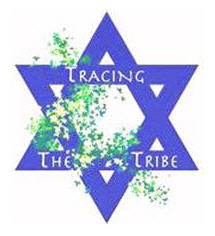The film opens September 12 in New York (Pioneer Theater) and on October 24 in Los Angeles (Laemmle’s Music Hall).
After surviving the German occupation of Italy during the Second World War by hiding with his parents and brother and sister in the home of non-Jews, Vittorio Volterra immigrated to Israel in 1952, when he was 20 years old, and never looked back. He met his wife in Israel, and his daughter, Hava, was born there. After what his daughter calls a “near-death experience” with tuberculosis, Volterra enrolled at the Hebrew University to study physics. He went on to become one of the great physicists of his time. In 1998, while still in his prime, he was diagnosed with a malignant brain tumor. Thirty days later he died in Israel.
Hava Volterra, an engineer by profession, left Israel to live in the United States when she was 21. She had loved her father deeply, but when he died prematurely, she realized that she had scarcely known him and was left with scores of unanswered questions. Vittorio was, she says, totally, utterly Italian in his mannerisms, language, culture and heritage. But why had he never talked to her about his family’s roots? Why had he never talked about his feelings for Italy? Who were his ancestors, and what had it meant to him to be an Italian Jew? And what might it come to mean to his daughter? To answer these questions, Hava set out to research her father’s family tree and make a documentary. The result is “The Tree of Life,” a remarkable 76-minute film of great beauty and substance.
With a professional genealogist's help, as well as her father's brother, she managed to trace her paternal grandfather’s family back to the early 15th century: a money lender granted the right to live among Christians because his professional services were needed. His descendants included money lenders, merchants and bankers; one was close to Lorenzo de Medici in Florence, Italy.
Her father's mother's family was traced to the 13th century Venice ghetto, to a brilliant Kabbalah scholar known as the Ramhal. The Jews themselves exiled him from the city, fearing his mystical claims would provoke Christians and divide the community. The scholar, his wife and children died of the plague in Israel in 1747.
Other ancestors include Venetian economist Luigi Luzzatti, who became the first Jewish prime minister in the Western world in 1910. A physicist and mathematician Vito Volterra lost everything in 1931 when he was one of only 12 university professors who refused to swear an oath of loyalty to Mussolini.
She interviews her father's wife, sister, a cousin, teachers, students, colleagues and friends, as well as experts in Italian-Jewish history, physics and even Kabbalah. With an aunt, she travels to a mountain village to visit the Catholic family that saved her father's life.
The result is not only a portrait of a man, but also a personal glimpse of the history of Italian Jewry and its complex, delicate, often fraught but equally often intimate relationship with Italian culture. Hava never directly answers the question of why her father did not talk about Italy to her. But the answer is there for us to see. It involves love of country, passion, devotion, commitment and, ultimately, profound disillusionment and betrayal. It involves painful emotions perhaps better conveyed visually than through the written word.
The article's author, Susan Zuccotti, has written “The Italians and the Holocaust: Persecution, Rescue, and Survival” (University of Nebraska Press, 1996) and “Under His Very Windows: The Vatican and the Holocaust in Italy” (Yale University Press, 2000).
Read the complete article at the link above.





































No comments:
Post a Comment